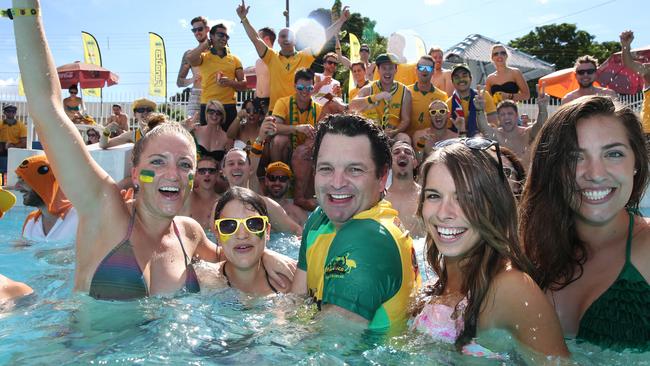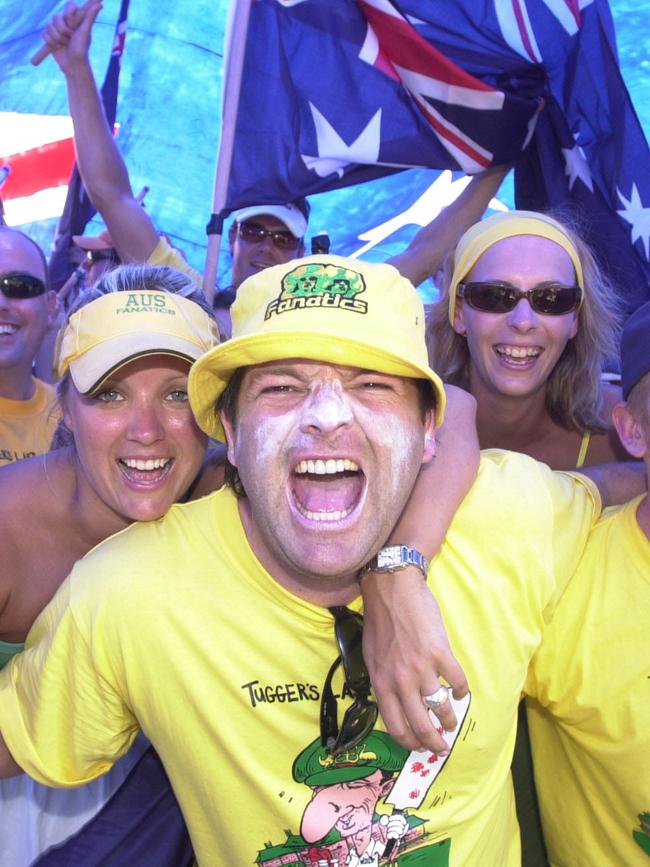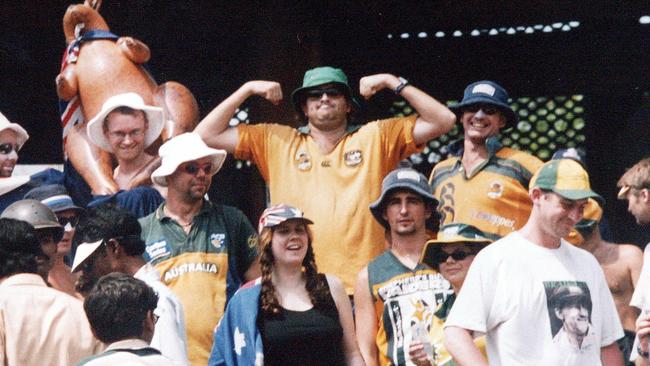‘They have to eat humble pie’: Aussie Fanatics founder hails victory over US retail giant
The colourful founder of a small but mighty Australian sports touring and clothing company has emerged victorious in a bitter trademark fight with a $47bn US retail behemoth.

A small Australian sports travel and clothing company has taken on a $47bn US giant in court and won, emerging victorious from a years long, bitter dispute over a trademark.
Colourful founder of Australian firm FanFirm Pty Ltd Warren Livingstone told The Australian he was “ecstatic” to learn his fight against the Florida based firm, Fanatics, is over after he successfully sued the company for breaching his trademarks — namely, use of the word fanatics on merchandise.
“They have been smacked around the head comprehensively, so they have to pay our costs,” Mr Livingstone said.
“We started as a supporter group, that was 27 years ago. So the world’s changed many, many times since then. And we’ve morphed into different kinds of businesses over that time,” he said.

“Our business has been affected by Covid, you know, significantly but, we came out the other side, and then we faced this battle. It’s been a rough couple of years, but we’re quite excited at the prospects.”
The court decision means the US company, with immediate effect, can’t sell its merchandise with “Fanatics” branding.
There could also be significant consequences for the US giant’s $100m deal with the AFL to become an official licence partner for the next 10 years, as well as a deal with Rebel Sport to sell “Fanatics” branded apparel.
Mr Livingstone said the result is an “absolute, comprehensive victory for us”.
“(It) is a timely reminder of the Australian law you know, and the fact that you need to abide by the law. They haven’t abided by the law, and they’ve been smacked around the head. So we’re pretty happy about that,” he said.
“I think it’s vindication of the time that we have spent over the last 27 years, the investment that we’ve made.
“To have an American company come in and completely disrespect everything that we’ve ever done in Australia … and to try and manipulate the system to be able to walk all over us. It’s nice to be in this position now, where they have to eat humble pie.”
Federal Court judge Helen Rofe ruled the US company’s Fanatics trademarks should be cancelled “in respect of online retail store services for sports merchandise”.
“None of the defences raised by the respondent are successful. Accordingly, the applicant has succeeded in its trade mark infringement case against the respondent, except in relation to the Impugned Services and the FANATICS LIVE and FANATICS MVP Marks,” she said.

In its defence, the US company — headed by US billionaire Michael Rubin and with investors such as rapper Jay-Z — rejected FanFirm’s argument that it had a reputation for promoting and selling merchandise with the word “Fanatics”, including clothing, sportswear and footwear other than as an add on to its sporting event and tour services.
Mr Livingstone’s company was launched in 1997 when his enthusiastic support for Pat Rafter at the US Open tennis men’s singles final in New York drew the attention of sporting legends John Newcombe and Tony Roche.
–
‘They haven’t abided by the law, and they’ve been smacked around the head. So we’re pretty happy about that’
Warren Livingstone, FanFirm founder
–
He proposed a travelling Australian “cheer squad” for tennis players, who would wear clothing branded with “Fanatics”. His squad quickly moved to support other codes, including cricket, golf and rugby.
The US giant has sold products in Australia since 2000, initially under the Football Fanatics brand. But from 2020, it took on the “Fanatics” brand and launched deals with the AFL to sell licensed merchandise and Rebel Sport to sell Fanatics branded apparel.
Its business initially focused on US sporting leagues, like the NFL and NBA, and then expanded to every major sporting code around the world.
Mr Livingstone said the US firm has “plenty of opportunities” to work together, but said: “They were quite arrogant, as I find most Americans.”





To join the conversation, please log in. Don't have an account? Register
Join the conversation, you are commenting as Logout